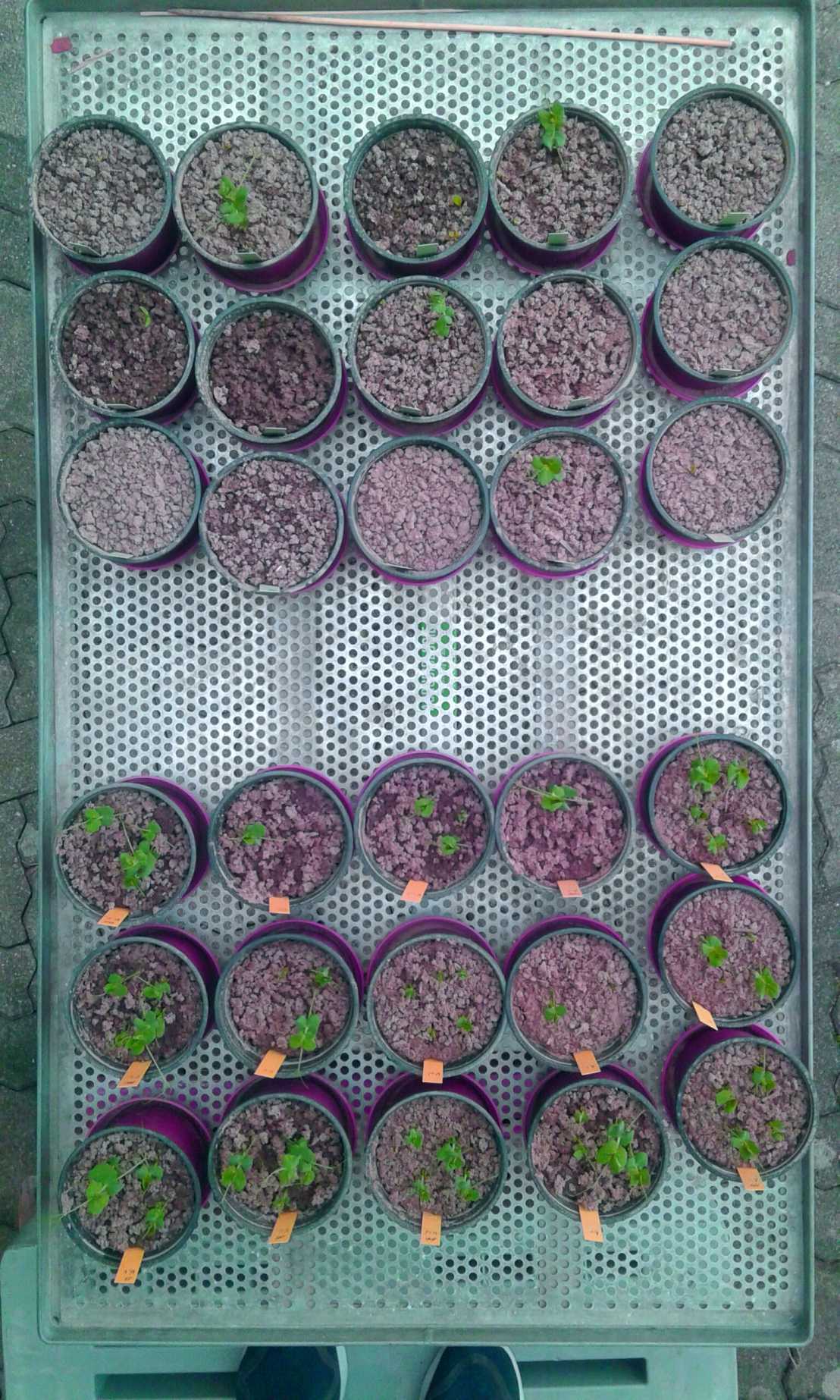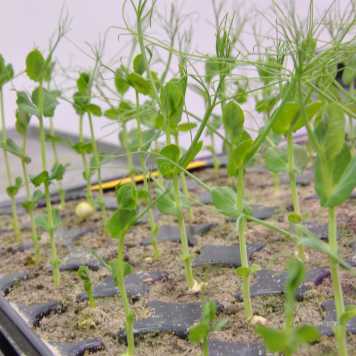Breeding against disease: New study from ResPEAct project
A new review article in Plant, Cell & Environment from the WFSC member group of Prof. Bruno Studer summarizes current knowledge of resistance against soil-borne pathogens in grain legumes and how these findings can be used by breeders.

Soil-borne diseases severely impede grain legume cultivation worldwide, limiting protein production. The WFSC Research Programs project “Improving disease resistance of pea through selection at the plant-soil interface” (ResPEAct) aims to improve the resistance of pea varieties against soil-borne diseases to obtain high and stable protein yields in organic and sustainable production systems.
In the new article published in Plant, Cell & Environment, lead author and doctoral student Lukas Wille details the research team’s review of the current knowledge of resistance against soil‐borne pathogens in grain legumes:
Although it has become clear that plant‐associated microbes play a key role in plant health, a systematic picture of how and to what extend plants can shape their own detrimental or beneficial microbiome remains to be drawn. There is increasing evidence for the existence of genetic variation in the regulation of plant‐microbe interactions that can be exploited by plant breeders.
Indeed, [b]reeding for resistance has been proposed as the most efficient, economical and sustainable approach for controlling diseases in legumes.
The authors mention more research is still needed, but there are already certain strategies and tools breeders can consider to integrate microbiome functions in breeding programmes.
Integrating the knowledge on multi-functional interactions between crop plants and microbes in future agricultural systems and plant breeding will eventually lead to sustainable solutions to reduce the threat imposed by soil-borne pathogens.
Read the full article ”Insights to plant-microbe interactions provide opportunities to improve resistance breeding against root diseases in grain legumes” from the team of authors at ETH Zurich and the Research Institute of Organic Agriculture (FiBL) in Plant, Cell & Environment external pageherecall_made

The paper is an output of the WFSC Research Program project “Improving disease resistance of pea through selection at the plant-soil interface (ResPEAct)." For more information on the project, visit the project page
